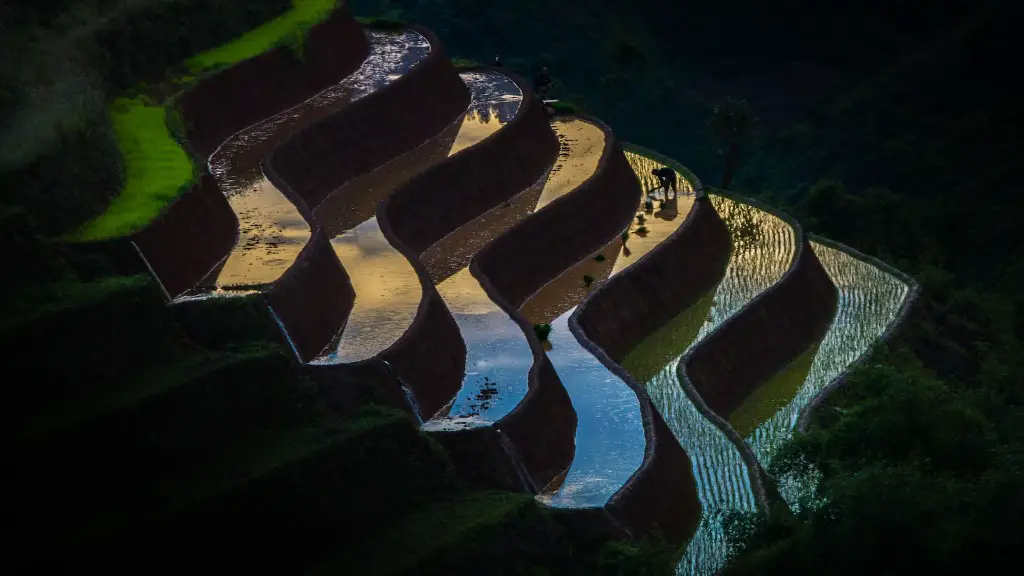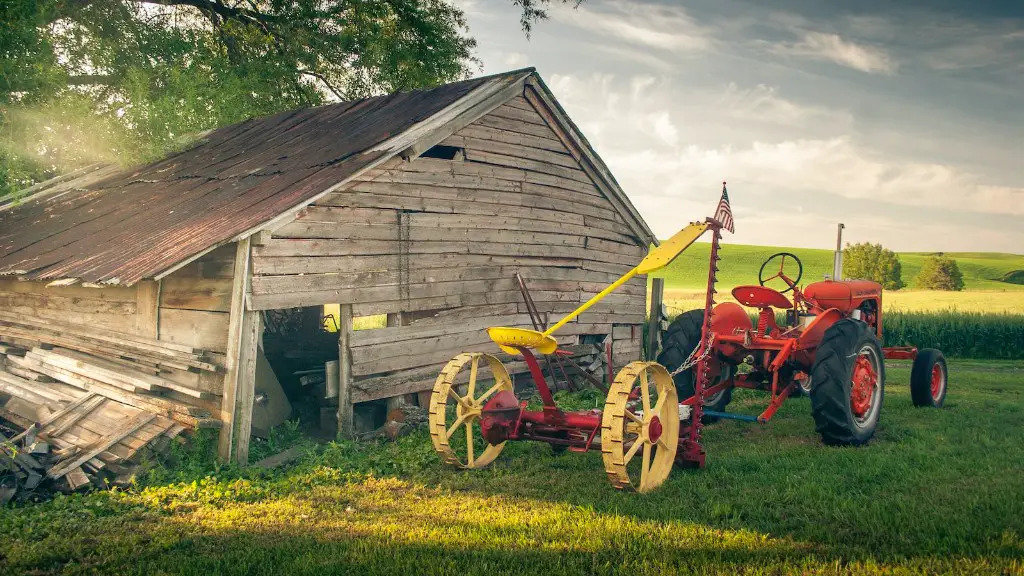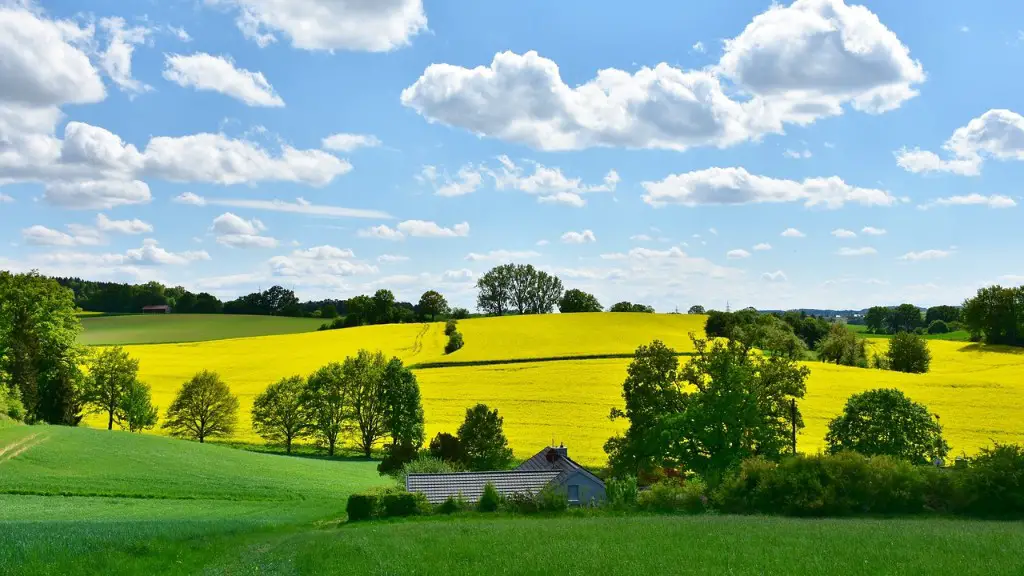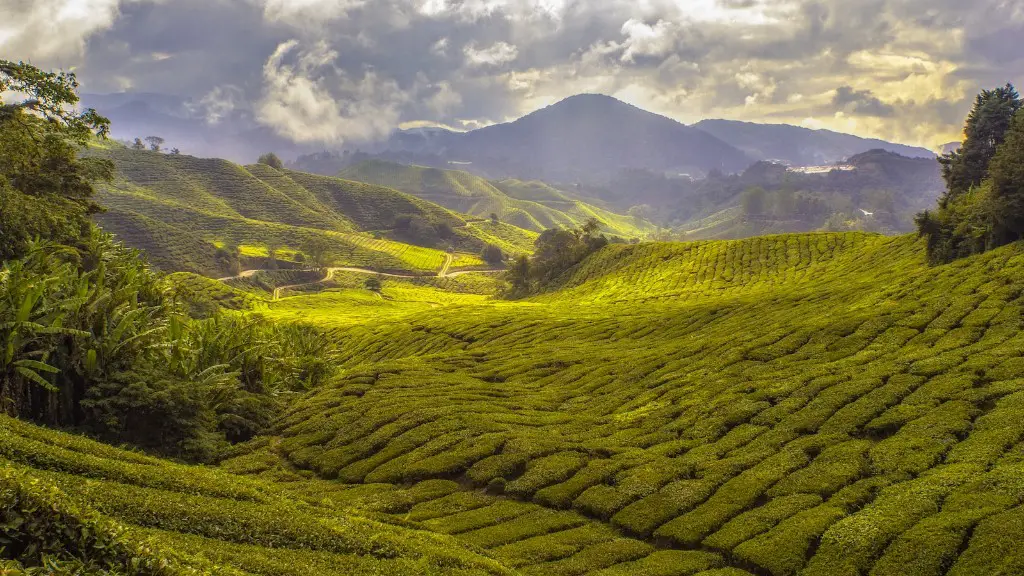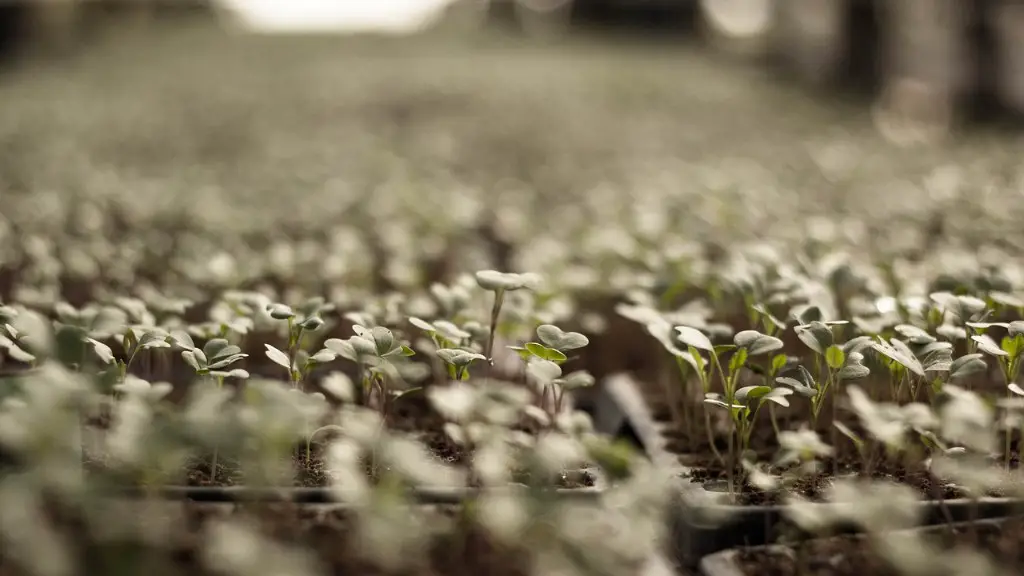Technology has had a huge impact on modern agriculture. The rise of technology has changed the way farmers farm, the way they distribute food and their overall operation. Let’s take a look at how technology has changed agriculture.
One major impact of technology on agriculture is the introduction of mechanization. This increase in mechanization has allowed farmers to produce crops more quickly and efficiently. This has freed up farmers to use more of their resources to drive innovation and improved output. For example, with the use of modern tractors farmers can move more soil in a shorter amount of time, resulting in higher yields.
Another way technology has impacted agriculture is the use of sensors and robotics. Technologies like IoT and AI can be used to monitor various aspects of crop production and performance. For instance, sensors can be embedded into soil or plants to measure temperature, moisture, and other characteristics in real-time. This information can help farmers better predict problems and optimize resources for higher yields and improved quality.
Technology has also changed the way farmers distribute their products. Technology allows farmers to reach more customers with ease. They can now sell products online and ship them to customers without ever leaving their farm. Additionally, technology has enabled more efficient food packaging. This can reduce food waste, increase shelf life, and ultimately improve yields.
Finally, technology has had a dramatic impact on how farmers store their products. Technology allows farmers to store their products in temperature- and moisture-controlled bins, enabling them to extend the shelf-life of their items. This makes it easier for farmers to move their products to farmers’ markets and other sales outlets. Additionally, technology has enabled farmers to track their products and ensure they are stored in optimal conditions, so they get to the end consumer in perfect condition.
Advancing agricultural research with technology
Technology has had a huge impact on modern agriculture research. The use of technology has enabled researchers to gather data in larger quantities and greater detail with the goal of better understanding agricultural systems and processes. This data can then be used to develop models and simulations to gain predictive insights. For example, researchers can now use remote sensing technologies to better identify soil quality, crop health, and pest infestations.
Technology can also be used to enhance crop breeding and selection. For instance, researchers are using molecular data to identify traits like drought-resistance, frost-resistance, and other desired characteristics. This technology makes it possible to select the most suitable traits in order to get the best yield and output in any given condition.
Moreover, technology has enabled scientists to better monitor crop performance in real-time in a range of growing environments. This helps inform decision-making and can increase yields. For example, scientists can use drones and satellite imagery to detect and monitor growth accurately and quickly.
Finally, technology can also be used to improve seed development and production. Scientists can use genetic engineering and mutation breeding to modify seeds for improved yield and quality. This can lead to higher crop yields and greater access to nutritious food.
Advancing Farming Solutions with Technology
Technology has had an undeniable impact on modern farming. By leveraging modern tools and systems, farmers can now more effectively manage their crops and resources. This improves operational output and efficiency.
For instance, advances in automation and digitalization enable farmers to monitor and control farming activities remotely. This allows them to access real-time information regarding crops, soil and water conditions, fertilizers, and other factors. This information can then be used to make better decisions that lead to higher yields.
In addition, technology can be used to optimize inputs and other resources. For example, farmers can use sensors to monitor soil moisture in order to detect areas that require extra water or fertilizer. This allows them to optimize their resources, resulting in higher yields.
Furthermore, modern technologies can be used to protect crops from pests and infections. Farmers can now use cameras and sensors to monitor for pests and detect infections earlier, enabling them to take action before major damage occurs. Additionally, farmers can also use robotic technologies to spray pesticides and herbicides more accurately and efficiently, thereby reducing their overall usage.
Finally, advances in technology have enabled farmers to increase the speed and accuracy of data-driven decision making. For example, they can now collect and analyze vast amounts of data to determine trends and develop strategies to ensure the highest yield and quality.
Enhancing Animal Well-Being with Technology
Technology has also had a great impact on animal well-being. By leveraging technology, farmers can now better monitor and take care of their livestock. This helps improve the overall health, welfare, and productivity of animals.
For example, with the use of sensors, farmers can track and monitor animal behaviors, health, and movements in real-time. This can help identify potential health issues earlier and improve animal welfare. Additionally, this technology can help farmers detect behavioral changes, enabling them to take proactive measures to maximize their output.
In addition, farmers can use technology to provide improved nutrition to their animals. Feeding trends, nutrient composition, and the health of animals can now be better monitored, enabling farmers to provide the best possible nutrition. This helps improve the overall health and productivity of the animals.
Furthermore, technology has enabled advanced animal breeding. By using genomic data, farmers can select animals with desirable qualities and increase the production of animals with desired traits. This helps farmers as well as consumers, by providing them with healthier and higher quality products.
Finally, technology can also be used to facilitate transportation of animals. This enables animals to reach the processing plants in better condition and reduces the transportation time while increasing their welfare.
Technology and the Future of Agriculture
Technology has had a tremendous impact on agriculture and will continue to do so in the years to come. The introduction of automation, connected devices and sensors, as well as advanced genetics and breeding will help to further improve output, efficiency, and sustainability.
In the future, technology will enable farmers to operate their farms with greater precision and accuracy. They will be able to monitor their soil, crops and livestock more easily, resulting in better decision-making. This will help them to maximize yields and reduce wastage.
In addition, predictive analytics and AI will enable farmers to better forecast and anticipate challenges. For instance, they can use predictive models to estimate yields, plan resources and stockpile, and even identify new opportunities. This will help them to be more agile and responsive to sudden changes.
Furthermore, technology will also become more important when it comes to food safety. Technologies like blockchain can be used to track and record the journey of food from farm-to-table, ensuring its authenticity and ensuring it is safe for consumption.
Finally, advances in technology will also enable farmers to explore innovative solutions to address the challenges posed by climate change. For example, robotic technologies can be used to monitor extreme weather conditions, such as draughts, tornadoes or floods. This enables farmers to act quickly when threats arise.
